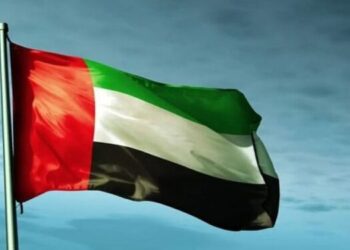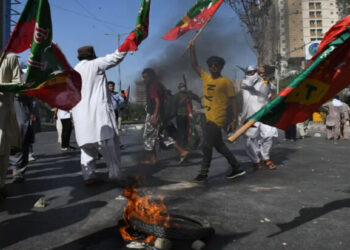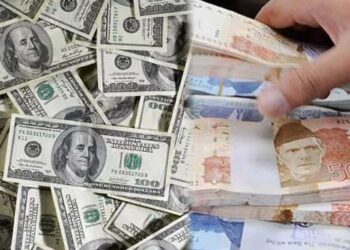![]() Follow Us on Google News
Follow Us on Google News
Mirza Ikhtiar Baig is a renowned industrialist and businessman with over thirty years of experience in various sectors of Pakistan.
He is the Chairman of Baig Group operating in diversified fields in Pakistan, UAE and other countries. He is also an expert on current national and economic issues. He has authored six books and writes regularly on the economic situation.
Baig is the former Advisor to the Prime Minister on Textiles and was instrumental for the first National Textile Policy. He has also played a vital role in enhancing trade relations with other countries and has been awarded for his contribution to the national economy.
We spoke to him on the current economic situation amid the coronavirus pandemic and gained his insight on how to overcome the adverse economic crisis.
MM News: What efforts have been taken to increase trade since you became Chairman of Pak-UAE Business Council?
Mirza Ikhtiar Baig: The Pak-UAE Joint Ministerial Commission meeting will be held in Abu Dhabi next week presided by the foreign ministers of both countries. The chairman of the Pak-UAE Business Council represents the private sector at the forum.
We have already sent our recommendations for the JMC which includes signing free-trade agreements with Gulf states, exporting rice to UAE cooperatives, PTCL’s privatization issues, unemployment of Pakistani workers in UAE and Middle East, and resolving the problems of the expatriate community.
MM News: What will be the effect of worsening US-China relations on the global economy?
Mirza Ikhtiar Baig: The situation between United States and China is steadily deteriorating which will not only have far-reaching negative consequences the economies of both countries, but also will affect the global economy. However, this will also provide Pakistan an opportunity to increase exports to USA.
How has the power and gas load shedding crisis impacted businesses?
Mirza Ikhtiar Baig: Industrial output has been badly affected due to the power and gas load shedding in Karachi. Questions are being raised on the performance and management capabilities of K-Electric. Apart from loadshedding, we are also facing the menace of overbilling. This is affecting exports and harming the nation’s economy.
MM News: How do you see Iran’s decision to drop India from the Chabahar project?
Mirza Ikhtiar Baig: Iran’s decision to drop India from the Chabahar project and sign $400 billion investment agreements with China is a huge development.
This will strongly improve China-Iran bilateral relations, which is good news from Pakistan. It has also shattered India’s dream to gain a foothold and expand its influence in the region.
MM News: How do you view the issue of PIA pilot’s fake licences?
Mirza Ikhtiar Baig: The government has handled the fake licences scandal in a very unprofessional way. This has created a global embarrassment for the PIA and the country around the world. The European Union has suspended PIA flights for six months, causing financial losses worth billions to the country.
MM News: Are you satisfied with the government’s steps to improve the economy?
Mirza Ikhtiar Baig: The state of the economy has worsened during the tenure of the incumbent government. During the last federal budget, the PTI government did not even achieve even a single economic target. The performance of the manufacturing, services, and agriculture sector was dismal.
Circular debt has surged to Rs 2,000 billion. State-owned institutions such as PIA, Railways, Steel Mills and WAPDA are giving a record Rs 1,000 billion annual loss. This is causing colossal damage to the economy which we cannot afford to bear.
MM News: What steps should the government take to improve agricultural output?
Mirza Ikhtiar Baig: To boost the agriculture sector, the government should spend on research and development for hybrid seeds which increase the yield per acre.
The biggest problem facing the agriculture sector is the low output and yield, whereas neigbouring and regional countries have much higher production.
MM News: What would you recommend for reducing the cost of production and facilitating business?
Mirza Ikhtiar Baig: One of the main reasons for low industrial production is the exponentially high cost of electricity. The price of electricity in Pakistan is much higher as compared to other regional countries. We need cheaper electricity to reduce the cost of production and increase industrial production.
MM News: How has the coronavirus pandemic impacted business?
Mirza Ikhtiar Baig: The priorities of buyers have changed in Pakistan and the global market. Now their foremost priority is the healthcare sector and basic food supplies.
Rather than new cars, garments or jeans, we are now focused on germs protection, face masks, hand gloves, protective gear, and medical equipment. Thus, we need to make arrangements based on changing priorities.
There is immense potential in the agricultural, livestock, fisheries, dairy, domestic commerce, and IT sectors. The government will have to facilitate businessmen in these sectors and finance them.
MM News: What efforts should be taken for those unemployed due to the coronavirus pandemic?
Mirza Ikhtiar Baig: According to Federal Minister for Planning and Development Asad Umar, more than 18 million are expected to lose their jobs and one million industrial units will be closed amid the pandemic. This will unleash a new of unemployment in the country.
More than 100,000 people working in foreign countries particularly the Middle East are unemployed and have been forced to return home. The government has a huge responsibility to provide them jobs and should include them in its mega projects.
MM News: What strategy should be made to come out of the economic crisis?
Mirza Ikhtiar Baig: Due to the coronavirus pandemic, it will take time and effort for the industrial and manufacturing sector to recover. The government should instead focus on agriculture, livestock, fisheries, dairy, domestic commerce, and IT sector.
The government should provide lucrative incentives for increased investment in these sectors. We need to devise policies to attract investment in the processing and packaging industry along with other affected sectors to lift the country from the economic crisis.
































